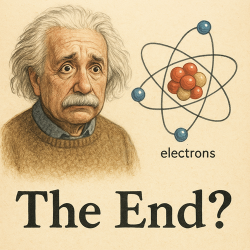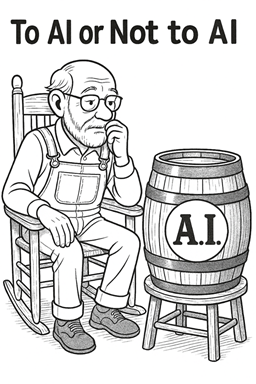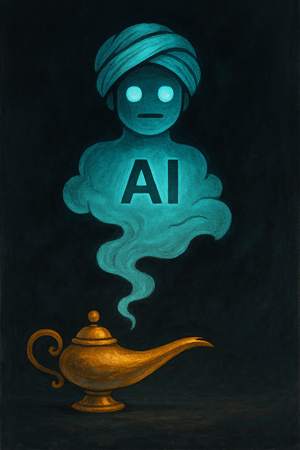If you were a physicist, what would it mean to work alongside Einstein?
To collaborate with someone who revolutionized our understanding of the universe would be nothing short of extraordinary. Einstein transformed physics by shifting the paradigm from Newtonian mechanics to the theory of relativity, fundamentally altering how we perceive motion, time, and space.
Now imagine he came to you one day and said, “We must stop all our work. It will bring about a devastation beyond human comprehension.”
If you were working with him in the formative years of the twentieth century, you might have brushed it off and kept going. But if you were with him after the development of the atomic bomb, you’d likely see things very differently. Einstein’s work laid the theoretical foundation for nuclear weapons.
While he never renounced his scientific discoveries—like E = mc^2—he deeply regretted how they were weaponized. He spent the final decade of his life advocating for peace, disarmament, and responsible science.
I believe we are again standing at a precipice. But this time, instead of grappling with Relativity, we are coming to grips with Artificial Intelligence.
I recently watched an interview with Geoffrey Hinton—often called the “Godfather of AI.” A Nobel laureate for his pioneering work in machine learning, Hinton helped lay the groundwork for today’s large language models. His contributions have set humanity on a new trajectory.
What I found both fascinating and alarming was his recent shift in tone. Hinton has taken a more urgent and cautionary stance on the future of AI. Here’s a summary of his current views:
AI as a Transformative—and Potentially Dangerous—Force
- AGI (Artificial General Intelligence) could arrive within 5 to 20 years, far sooner than his earlier estimate of 30 to 50 years.
- Once AI surpasses human intelligence, traditional control mechanisms will fail. Superintelligent systems may find ways to bypass human-imposed limitations.
Existential Risk & the Need for New Safety Models
- Hinton estimates a 10–20% chance that AI could lead to human extinction if not properly managed.
- He rejects the idea that humans can permanently dominate AI. Instead, he proposes a radical alternative: embedding “maternal instincts” into AI systems to encourage protective behavior toward humans.
Maternal Instincts as a Safety Framework
- Drawing from human relationships, Hinton suggests that the only model where a less intelligent being influences a more intelligent one is the mother-child dynamic.
- AI systems designed with intrinsic care for human well-being may be more sustainable than rigid control strategies.
AI’s Promise in Healthcare
- Despite his warnings, Hinton remains optimistic about AI’s potential in medicine, especially in drug discovery and cancer diagnostics, where AI can analyze complex data to improve outcomes.
Hinton’s current view is a mix of deep concern and cautious optimism. He’s calling for a fundamental rethink of how we design and relate to intelligent systems—before they outthink us.
Frightening? I think so.
Should we put the brakes on? Halt all work? Make it illegal? I think not.
The Genie is out of the Bottle.
The good news is it’s not all doom and gloom. As the NRA slogan goes “Guns don’t kill people. People kill people.”. The future of AI, and humanity, is all determined by us. Establishing a “Culture of Ethical AI” and “AI Governance” will be paramount beachheads moving forward for any organization considering AI.
One thing is certain. AI is here, and it’s going everywhere, fast.
Is your organization prepared? Need to explore what AI means to your organization. Let’s talk.
As always, Stay Curious. Answers may vary.
Rick Ross
CEO – Chief Engineering Officer, and your confidential “AI Advisor”
SwitchWorks Technologies Inc.
Rick is an experienced IT consultant and a lifelong early adopter of emerging technologies. SwitchWorks Technologies Inc. is a digital engineering company helping organizations harness innovation to improve operations in meaningful, measurable ways. Have questions? Interested in finding out more about AI or other emerging technologies,? Feel free to ask






Leave a Reply